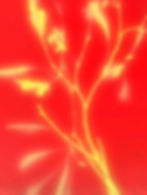Understanding 'De Qi': The Essential Sensation of Acupuncture
- Dr. Margie Virgo D.TCM, R.Ac
- May 23, 2025
- 4 min read
Updated: 7 days ago
If you've ever experienced acupuncture or are considering it, you might hear your practitioner mention something called "De Qi" (pronounced duh chee). It's a term used in Traditional Chinese Medicine (TCM) that refers to a specific sensation felt during acupuncture—and it plays a central role in how treatment works.
But what exactly is De Qi, and why does it matter?
What IS the Qi and WHAT is 'DE QI'?
Qi is the vital life force or energy that flows through the body and forms the foundation of how acupuncture works. In Traditional Chinese Medicine, it's believed that the smooth and balanced flow of Qi is essential for health and wellbeing. When Qi becomes blocked or stagnant, it can lead to pain or illness — and that's where acupuncture comes in, helping to restore its natural flow. This concept is known by different names across cultures: in Japan, it’s called Ki, while in Western science circles, it's sometimes referred to as bioelectromagnetic energy. No matter the terminology, the idea remains the same — that our bodies are governed by an invisible yet powerful energy system, and when it's in balance, we feel our best.
In Chinese, "De Qi" means "obtaining the Qi or arrival of the Qi at the needle", where Qi refers to the body’s vital energy. In the context of acupuncture, De Qi describes the moment when the practitioner knows the needle has effectively connected with the Qi of the body.
It's not just about placing the needle—De Qi signals that the point has been properly 'activated' to influence the flow of Qi, which is essential for achieving therapeutic effects.
What Does De Qi Feel Like?
Everyone experiences De Qi a little differently, but the most common sensations include:
A deep, dull ache or throb sensation
A heavy or spreading feeling
Tingling or warmth, feeling waves of movement
A slight pulling or tugging
Numbness or pressure/heaviness
De Qi should not feel sharp, stabbing, or like a hot poker. If you experience such sensations, inform your practitioner so they can adjust the needle to achieve the correct feeling. Although it might seem unusual initially, most people find the sensation quite tolerable and even deeply relaxing once accustomed to it.
What Does De Qi Mean for Treatment?
From a TCM perspective, De Qi means the needle is effectively influencing the meridian system—the energetic pathways of the body. It's often seen as a sign that:
The Qi is being moved or unblocked
The body is responding to treatment
Healing processes are being stimulated
In clinical practice, practitioners often manipulate the needle gently—twirling or lifting and thrusting—to help elicit this response.
What Does Science Say?
Modern research supports the significance of De Qi. Studies using MRI and other imaging techniques have shown that when De Qi is achieved:
Blood flow increases to certain areas
Pain-related brain regions are activated differently than with superficial needling
The body’s nervous and immune systems may be positively influenced
These findings suggest that De Qi is more than just a traditional concept—it may also correspond with measurable physiological changes.
Do You Need to Feel De Qi for Acupuncture to Work?
Not always but it is preferable for the practitioner to work with you to achieve 'De Qi' for optimal results and while many practitioners aim to achieve De Qi, especially in more traditional or classical styles of acupuncture, modern approaches may use gentler techniques with minimal or no sensation. Some styles focus on subtle methods that still provide effective results, particularly in sensitive individuals.
Still, De Qi can be a helpful indicator for both practitioner and patient that the point is activated and the body is engaging with the treatment.
Simple Ways to Support Your Wellbeing
Book regular acupuncture sessions with a registered acupuncturist and Chinese medicine practitioner
Practice gentle movement like Qi Gong or Tai Chi to cultivate your Qi
Take time to meditate and calm your mind
Spend time in nature to ground and recharge
Nurture yourself with quality sleep, nourishing food, and plenty of rest
Final Thoughts
Whether you're new to acupuncture or a seasoned patient, understanding the De Qi sensation can help you feel more informed and confident in your treatment. Rather than something to fear, De Qi is a sign your body is responding—moving Qi, promoting circulation, calming the nervous system, and supporting healing from the inside out.
So next time you're on the table and feel a little tingle or heaviness at a needle site, you can smile and think: “Ah, there it is—De Qi.”
REFERENCES;
Disclaimer:This blog provides general information only and is not intended as medical advice, diagnosis or treatment. Information about acupuncture, Chinese medicine and related therapies is general in nature and does not replace individual consultation with a qualified health practitioner. References to research are provided for informational purposes only and do not guarantee treatment outcomes. Individual results may vary.



